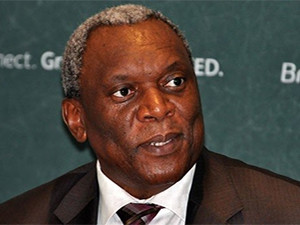
The State Information Technology Agency (SITA) should be spending more on IT procurement for government departments.
That was the word from telecommunications and postal services minister Siyabonga Cwele, speaking during the GovTech conference in Durban yesterday.
According to Cwele, SITA - an R8 billion company - has improved its performance over the past years, particularly on the procurement aspect.
"SITA spends about R5 billion every year on procurement and it should be spending even more. It spends about R400 million on small and medium enterprises, which is a little bit short of what president [Jacob] Zuma directed us this year. We understand that this will be a long journey but this target must be met."
He noted that last week, the ministry attended the inaugural BRICS ICT working group in Moscow, where discussions were about ICT emerging as an important medium to bridge the gap between developed and developing countries.
At the working group, ICT was recognised as a tool for transition from the information to knowledge society, he noted.
"It was also discussed that there is a need to foster further cooperation in the areas of ICT, including the Internet, which is in the interest of our developing country."
The group also condemned the abuse of ICT and the Internet to violate human rights and fundamental freedoms, including the right to privacy and, more importantly, the protection of personal data, Cwele pointed out. They concluded the same rights that people enjoy offline must also be protected online, he added.
"They considered that the Internet is a global resource and that nation states should participate on equal footing in this evolution, taking into account the needs to involve the relevant stakeholders in their respective roles and responsibilities."
He said BRICS countries were in favour of an open non-segmented and secure Internet. "We support the evolution of the Internet governance ecosystem which should also be based on an open and democratic process, free from influence from any unilateral actions but under the principles of international law as enshrined in the UN Charter."
The minister also pointed out there are about 3.2 billion connected people in the world and about 4.3 billion are still to be connected, and these will more difficult to connect because these are the people living in the marginalised areas.
"We, as a nation, face the same challenge. Those who stay in the suburbs of Johannesburg and Durban are connected. They have got two or even three smartphones, but those that are living in the informal settlements, townships and rural areas are still not connected.
"We also encourage open access software development where the various experts can collaborate to provide solutions. We want our companies to focus on the innovations around software technologies, operating systems, cloud computing, automation and cyber security because we have to continue to increase the confidence in our citizens to use the Internet as an empowering tool."
He encouraged companies and academia to join hands in developing new technologies for communication, particularly 5G. "We are working hard to ensure that standards are developed and are favourable even to developing countries for 5G technology."
It's strongly believed innovation and competition lie in the support of the small business sector, whose talents and creativity will contribute to job creation and solutions to local challenges, said Cwele.
"As we move to e-government, we are looking for the equipment and software technologies that will help us with the resilience, continuity and security of the Internet so that our citizens can access the services efficiently and with the confidence that their personal data will be protected."
He added SA is facing the challenge of the digital divide which has left many South Africans without access to ICT infrastructure and services. "But if we partner and use our collective effort, we will bridge this digital divide.
"We have started rolling out the first phase of the SA Connect project, rolling out scalable broadband infrastructure in eight rural districts. We are also finalising the funding options for the second phase of this broadband rollout, which entails rolling out broadband to all communities and all government offices throughout the country."
He pointed out the ministry is in discussion with municipalities about sustainable ways to provide WiFi services as a strategy to improve Internet access to all South Africans, particularly the youth and the poor.
"We have to advance our nation into an information society and knowledge economy to drive our socio-economic development."
The World Bank has indicated a 10% increase in broadband penetration has the potential to accelerate economic growth by 1.38% in developing countries. "This means currently we are estimated to be at 17% penetration in terms of broadband rollout. So if we move to 27% that will help in economic growth and if we can just improve it to 35% or 40% it will ensure that despite the economic challenges and downturn, we can still manage."
Share